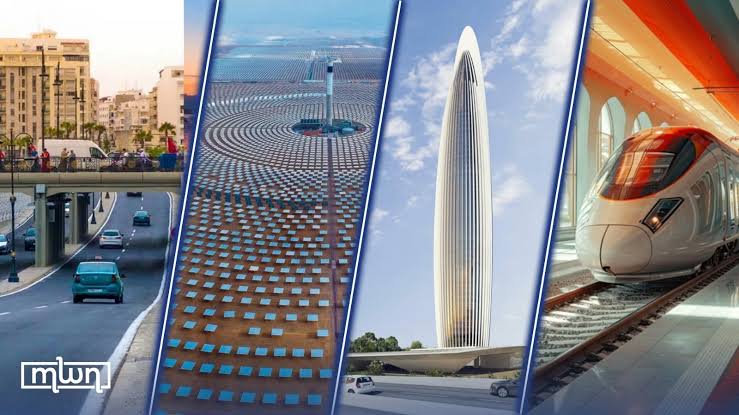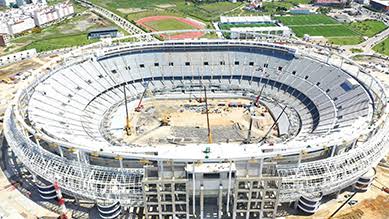 Morocco continues to push boundaries in infrastructure development, fueled by an ambitious national plan to become a gateway between Europe and Africa. Major progress has recently been made in rail, road, and port infrastructure.
Morocco continues to push boundaries in infrastructure development, fueled by an ambitious national plan to become a gateway between Europe and Africa. Major progress has recently been made in rail, road, and port infrastructure.
High-Speed Rail Expansion
 Morocco became the first African country to operate a high-speed rail service (Al Boraq) in 2018, linking Tangier and Casablanca. The next phase includes a $2.9 billion investment to acquire 168 high-speed trains from manufacturers in France, Spain, and South Korea to extend the service toward Marrakech.
Morocco became the first African country to operate a high-speed rail service (Al Boraq) in 2018, linking Tangier and Casablanca. The next phase includes a $2.9 billion investment to acquire 168 high-speed trains from manufacturers in France, Spain, and South Korea to extend the service toward Marrakech.
- The extended route will reduce travel time between Tangier and Marrakech to under 3 hours.
- Funded by a mix of public investment and international loans, including from the French Development Agency.
Road Network Expansion
As Morocco prepares to co-host the 2030 FIFA World Cup, a $735 million national motorway plan is underway. This includes:
- 1,000 km of new highways,
- Upgrading critical transport arteries like the Rabat-Casablanca corridor,
- Improving access to stadiums and urban centers in line with FIFA infrastructure requirements.
Port and Trade Infrastructure
The Dakhla Atlantic Port—a $1.13 billion project—aims to boost Morocco’s trade capabilities and enhance regional maritime logistics. It will support fisheries, phosphate exports, and trans-shipment for Atlantic and West African traffic.
In all, Morocco is aligning infrastructure growth with its ambitions in tourism, logistics, and sustainable transport, backed by comprehensive planning and foreign partnerships.

